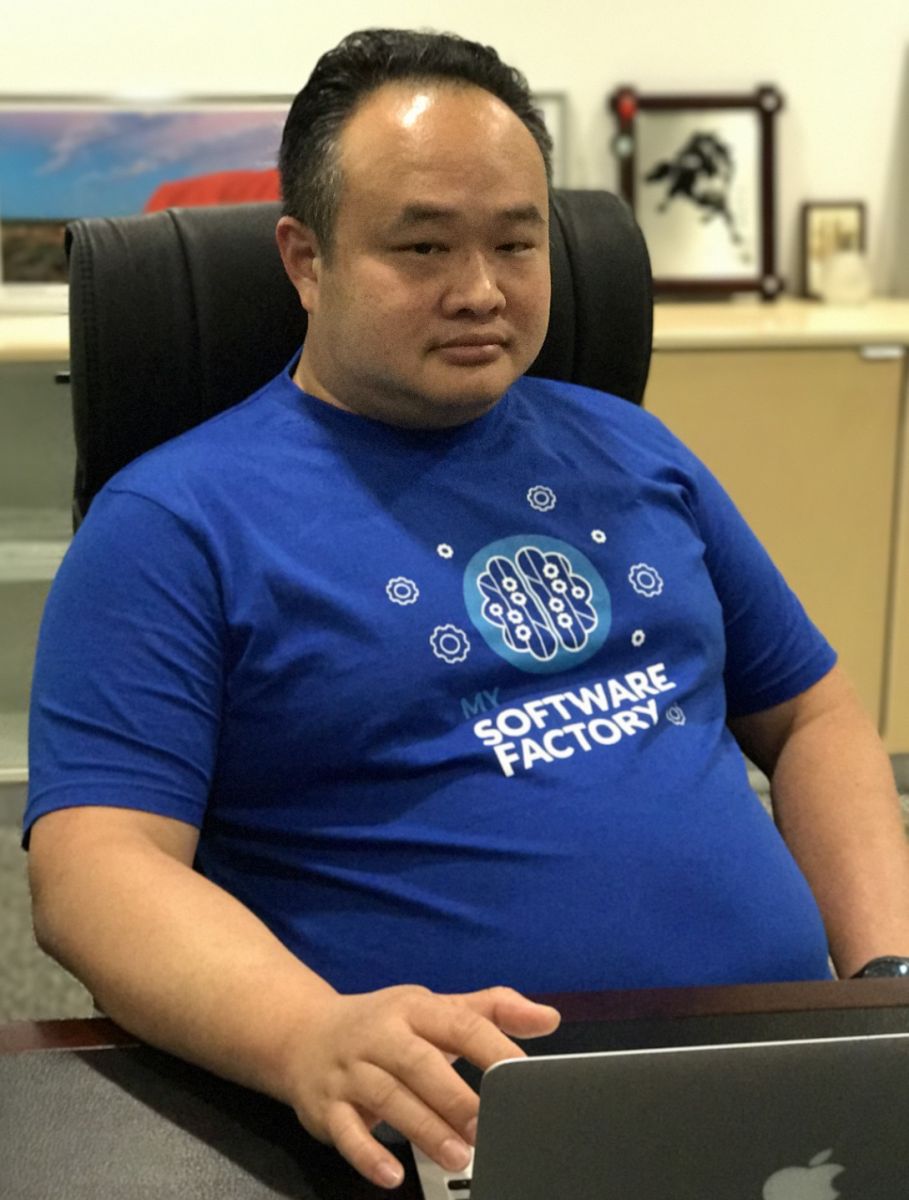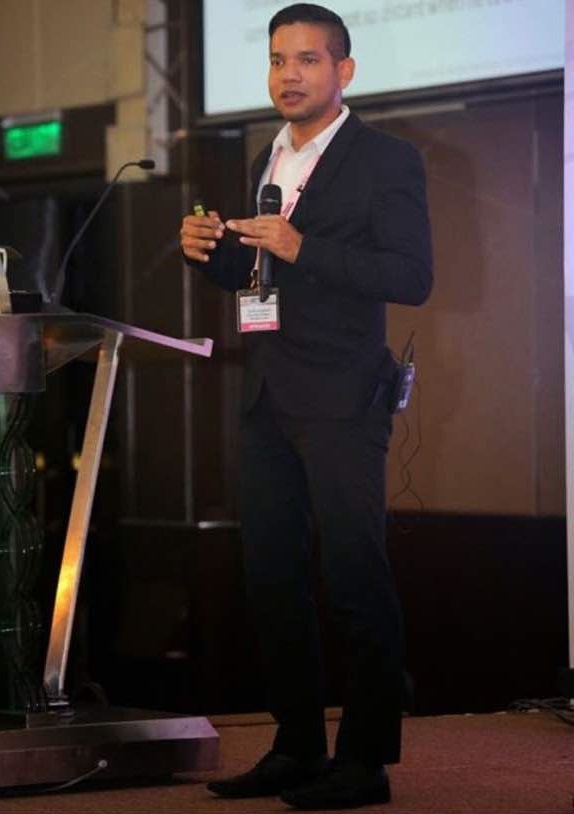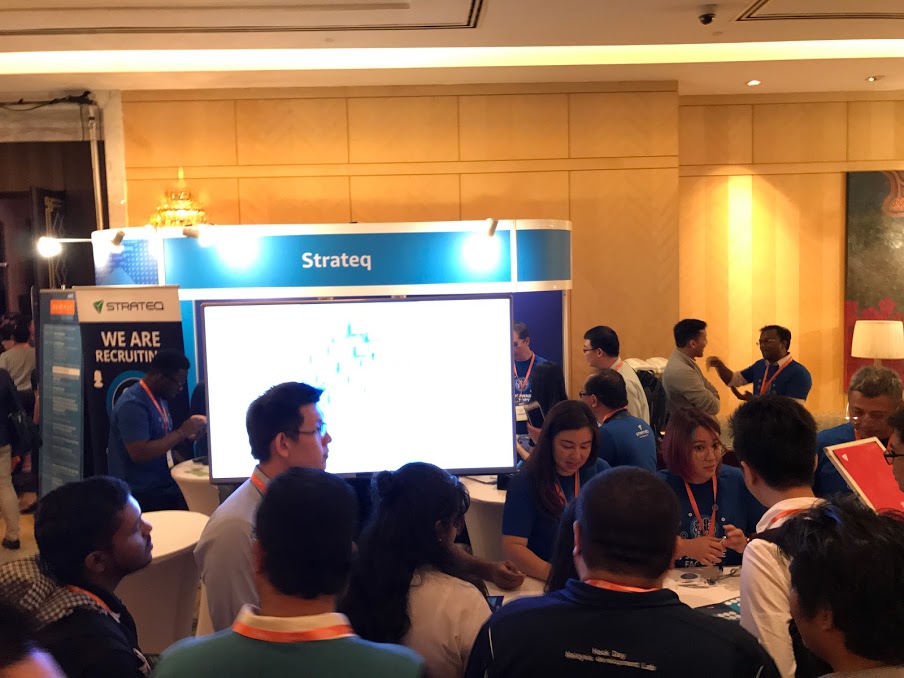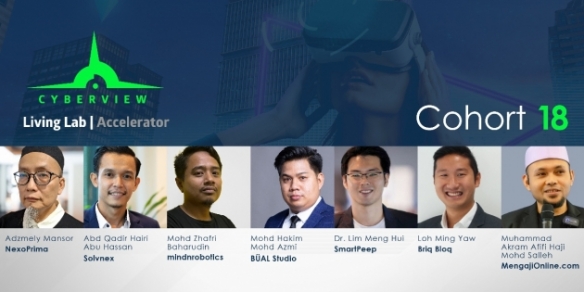Strateq re-engineers to meet new challenges
By Edwin Yapp April 28, 2017
- 34-year-old company reinventing itself to meet digital revolution
- Becoming a software-centric provider, powered by DevOps, cloud tech
THE media is replete with stories of how companies are transforming themselves from a brick-and-mortar set up to becoming a more digital enterprise.
For many of these companies, the task of becoming more digital is usually driven by the need to become more agile and keep themselves from being overtaken by more nimble startups, many of which are digital by birth.
For homegrown IT solutions providers Strateq Group Sdn Bhd however, evolving to become a more digital enterprise wasn’t just about trying to keep ahead of smaller startups but the genuine belief that the world is becoming more software-centric in nature.

SCS became known as Kompakar Esystems Sdn Bhd in 2004 and made a shift to specialise in key verticals such as data centres, oil and gas, healthcare and disaster recovery services, Tan explained.
In this phase of the company’s growth, Kompakar developed comprehensive end-to-end solutions aimed at meeting customers’ needs and competencies within those industries, Tan added.
Seven years later, Tan said the company evolved again and became known as Strateq Group. Tan revealed the name ‘Strateq’ is a play on the words ‘strategy’ and ‘technology,’ which signifies the combined use of strategy and technology to help its customers transform and grow their business.
“In tandem with the rebranding exercise, Kompakar became Strateq in 2011 and our company also expanded our footprint into the Asian region namely in Hong Kong, China, Thailand, Singapore, and the United States (San Francisco and Dallas) to better serve our customers.
Tan said that for over 30 years since its beginning in 1983, Strateq has reaped the many benefits of being an SI and has done well as one of Malaysia’s premier SIs and data centre providers.
However, having done so well over the years also had its challenges, Tan candidly admitted.
Speaking to Digital News Asia in an exclusive interview, Tan said the company had become unwieldy, having many lines of business that became a burden to the entire group in a bid to keep profitable it and efficient at the same time.
“We had to restructure the business and realign areas in specific focus areas,” he shared. “It took five years for us to turn it around and I’m happy to report we’re now ready to face the next phase of growth.”
Part of the reinvention of Strateq is to innovate from within and transform into a software and cloud company.
Tan said this journey began in the healthcare vertical, where Strateq has been traditionally strong. Strateq, during its days as Kompakar, managed to develop a full-fledged homegrown Total Hospital Information System (THIS) called Ficisien, which was used by local hospitals, Tan noted.
 Strateq's chief innovation officer Leon Jackson (pic, right) added that the company has a history of transforming or evolving, motivated by its relationship with its customers and its commitment to meeting their operational needs.
Strateq's chief innovation officer Leon Jackson (pic, right) added that the company has a history of transforming or evolving, motivated by its relationship with its customers and its commitment to meeting their operational needs.
“We are very much an operations software and solutions company and this is the history and legacy of SCS to Kompakar to Strateq,” he explained. “Our transformation from an SI in the beginning to a more focused solutions provider was a result of meeting some needs of key customers.”
Jackson, who was formerly the head of IT at Universiti Malaya Specialist Center (UMSC), said part of this transformation into a cloud player required Strateq’s group subsidiary, Strateq Health, to rebuild the [Ficisien] solution for the cloud using agile and lean IT methodology.
Based on a microservices architecture with newer cloud friendly languages and components, Ficisien morphed into a new cloud-based solution called 37 Degrees.
“This new evolution of Fiscien then became a full-fledged Electronic Health Record (EHR) product which was provisioned to our customers in the US market using Amazon Web Services (AWS) as the cloud platform.
“This experience with the Health Insurance Portability and Accountability Act-compliant (HIPAA-compliant) solution on Amazon Web Services' (AWS) cloud in the United States made us confident in betting on translating more of our software products to this platform,” he explained, noting that 37 Degrees is now being used in United Memorial Medical Centre in Houston, Texas.
Besides the healthcare sector, Jackson said Strateq is also setting out to transform its downstream oil and gas business, where it handles the operations and maintenance of the refuelling stations as well as the data centre operations business, positioned as disaster recovery and business continuity services for companies that need them.
More recently, Strateq has led another round of transformation into becoming a cloud software DevOps as well as a software-as-a-service (SaaS) shop, which he said is a very a logical follow through of the evolution of a 34-year-old IT shop.
“While the technology and partners may have changed, the motivation of Strateq remains the same – to provide the best operational tools and outcomes for our customers and to leverage new technology to innovate with them.”
Challenges abound
Change is never easy and when asked what were some of the challenges faced by Strateq as a whole, Jackson named three.
The first, he said, has to do with making sure the company stays on point in its quest to transform. “Not all innovation and transformation is helpful. The trick is to have a clear grasp of our priorities and the core reasons for which a business or process exists,” Jackson argued.
The second challenge is to “break up the company without killing it.”
“As we apply creative destruction or disruption to a line of business or a process, we need to have a transition plan and life support for it. Much like a human in surgery, we have to always watch for unintended consequences and other effects as we work out a change.”
Finally, Jackson said Strateq had to repurpose and upgrade its obsolete labour base because of automation.
“At Strateq we value people, and are committed to retraining and repurposing them for new roles and realities. As automation happens, we realise some jobs will be taken away but we’re internally spending on retraining our own staff and not letting them be left behind,” he said.
Besides grappling with these challenges, Jackson also revealed that at the heart of digitisation is talent, or more specifically, the need to retain them.
“Technical and business skills can be trained but motivation and personal conviction is something we labour to inculcate and demonstrate from the leadership,” he argued. “Talent is so important to us that we’re focused on getting that done ahead of promoting our products and services in public.”
“In fact, we’re hiring competent people with all kinds of software skills for Strateq now, and our plan is to grow our talent pool in line with our aim to transform into a software-centric company,” Jackson said, adding that contrary to popular belief, he's certain there are ample local software talent in Malaysia today.
Future plans
At the end of the day, Jackson declared the goal for Strateq in its digital transformation is to convert some of its specialised software into new software-based platforms to allow the businesses it serves to better reach their customers and offer them a host of new products and services to drive new revenue streams and loyalty.
Jackson claimed that initially, Strateq’s customers would appreciate the automation and efficiency from these platforms but eventually the turn from specialised software into platforms will help Strateq grow into valuable markets, which will enable it to better serve its customers.
“These platforms allow for continuous innovation and experimentation for our customers to find what works,” he said.
Jackson also revealed that in tandem with this is the need for Strateq to embrace a maturing DevOps mentality and embed that into the key vertical industries it serves while rapidly deploying mobile applications on the cloud and using SaaS for its customers.
This is why Strateq has also recently become a partner with leading cloud provider AWS, Jackson said.
“AWS has more of a track record to work with startups but they also see the value of working with older, more matured enterprise players like us because we have an established business in the healthcare and oil and gas space.
“But it wasn’t easy becoming their partner as we had to show we had what it takes to be agile and were willing to change how we did things – from top management right to working level,” said Jackson.
Besides this, Jackson revealed that Strateq aims to create a matured innovative Internet of Things (IoT) and big data analytics (BDA) practice.
“Our aim is to continuously help customers automate and make sense from their operations,” he shared. “We aim to provide our customers with the best decision support tools in order they may achieve the best operational goals.
“We also aim to become a specialised operator of platform SaaS solutions, which can continuously facilitate transactions between our customers and their customers.”
Related Stories:
Retail giant Senheng to enter e-commerce fray with O2O model
Culture shift imperative in cloud adoption: HSBC CIO
CIOs tend to over-think cloud adoption: Ex-Dow Jones CIO
DevOps: Smashing through software development silos
For more technology news and the latest updates, follow us on Facebook,Twitter or LinkedIn.



